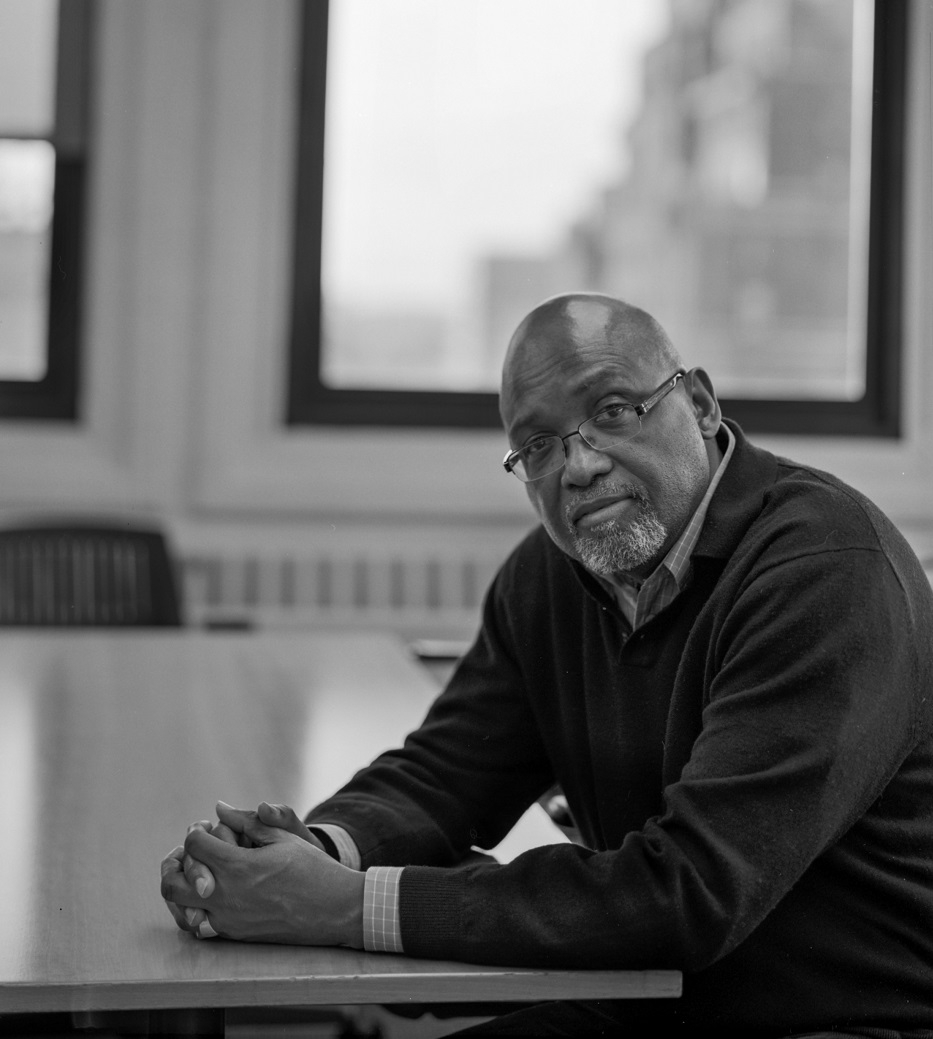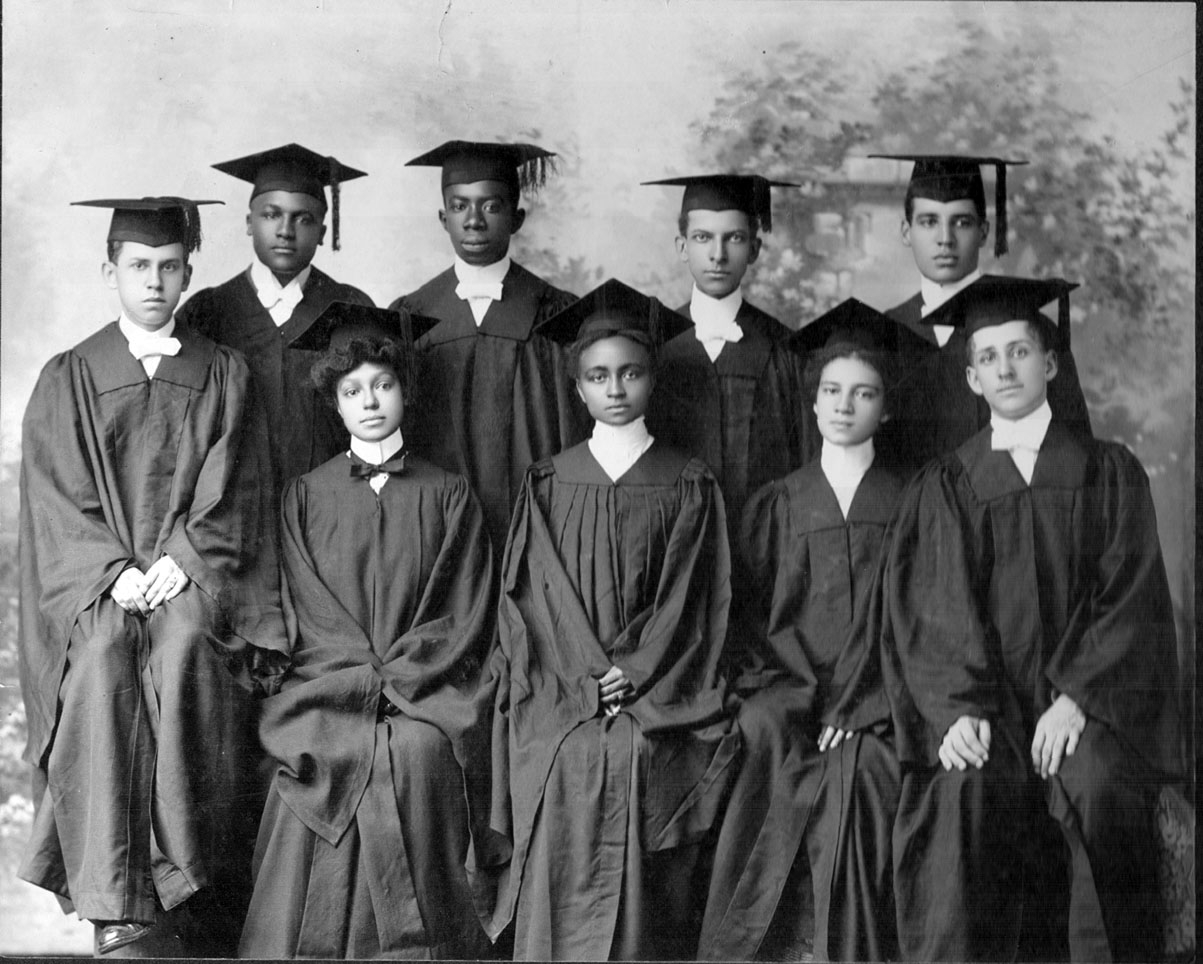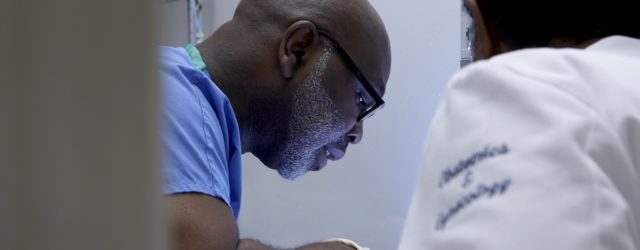 Since our journey began in this country, parents of Black and brown children have had very frank and often chilling conversations with their offspring about encounters and interactions with law enforcement. While many police officers honor their code; others wield their power by brutalizing, terrorizing, murdering and wreaking havoc throughout communities of color.
Since our journey began in this country, parents of Black and brown children have had very frank and often chilling conversations with their offspring about encounters and interactions with law enforcement. While many police officers honor their code; others wield their power by brutalizing, terrorizing, murdering and wreaking havoc throughout communities of color.
In his two-hour PBS documentary, “The Talk- Race In America” veteran filmmaker Sam Pollard tackles police and race relations across the United States of America. Through six different segments, Pollard looks at a diverse number of perspectives from various communities as well as the police themselves, showcasing what has so deeply divided us while trying to determine how we can begin to change the narrative.
Pollard also speaks with well-known figures in our society including, rapper Nas, actress Rosie Perez, and director John Singleton, each whom have had their own personal and unforgettable encounters with law enforcement. Ahead of the film’s premiere, I sat down to chat with Sam Pollard about constructing this story and what we can tell our children as we move forward.
Aramide Tinubu: Hi Sam, how are you?
Sam Pollard: Doing good Aramide, how are you?
AT: Fine, thank you. Thank you so much for taking the time to speak with me about “The Talk.”
SP: My pleasure.
AT: You’ve worked on everything from “Eyes on the Prize,” to “American Masters” for Zora Neale Hurston and August Wilson, so you’re a master storyteller, especially when it comes to capturing the African American experience. So, how did you get the idea to do “The Talk?”
SP: Well, you know the idea really came from CPB, the Corporation for Public Broadcasting. They felt they wanted to do something that looked at this conversation that parents of color have with their children about what happens when they interact with the police, and they wanted to look at it from all perspectives. They approached WNET about wanting to do a two-hour film and Academy Award nominee, Julie Anderson put me on this as the supervising producer. So that’s how I got involved. However, I’d like to say this, as a person of color who has been making documentaries for over thirty years, it’s been one of my main responsibilities that all of the films I do, be it “Eyes on the Prize,” or “August Wilson,” or “Rise and Fall of Jim Crow;” that we present the African American experience, because a lot of people don’t understand that’s American history also.
AT: That’s very true. For me, “The Talk” felt like a very different type of documentary for PBS. It had a very different tone, and what I really loved about it was the overarching, all-encompassing view across the country on police violence from different perspectives. We heard from the Latino community, the Black community, and you even looked at the police. So how did you tackle the different segments? How did you decide which stories you needed to tell?
SP: Well, Julie [Anderson] and I, both felt it was important to do a broad spectrum of looking at this story and looking at the complications of the story. We not only wanted to do it from the perspective of the people in the community, but we wanted to get the perspectives of law enforcement too. We felt it was important that we had stories that sort of touched on different areas. So, we had our associate producers, and our researchers do extensive amounts of research. In searching for those stories, part of this process is just getting down to a story that we think would be the most appropriate and then start making the film. And that’s where we came up with the different types of stories. We had the story of the police academy in South Carolina, that’s trying to make sure that their police officers understand how they need to be able to interact with the people in the community. That was one important story that we felt that we needed to do. We wanted to do a story about this organization called the Ethics Project that was developed by this woman named Christi Griffin. We wanted to look at how people of color felt it was important to get out and talk to white people, people who aren’t from our communities, to understand what we have to deal with every day when we become involved with the police. We wanted to do a story that looked at the Latino perspective. That’s why we found the story of Oscar Ramirez who was killed out in California. So, we were trying to make sure that we didn’t just become very narrow-minded in how we wanted to approach and be approached in telling this story.
AT: You talked about the extensive research that went into making the film. What was that process like, and how long did that take before you actually began filming?
SP: Well, we started the process in October of 2015. Then, as we did the research we started to reach out to different producers who we thought might be a good fit for the stories we wanted to do, and we brought them on in January 2016. We didn’t really start any actual production until March of 2016. So it was five months of pre-production before we actually went out into the field.
Continue reading at Shadow and Act.

 To this day, education is not an inherent right. The effects of segregation are still deeply steeped in the Black community, and unless there is careful nurturing within the family home or by some particularly devoted educators, many Black people in this country have found themselves severely under and uneducated. Despite the lack of resources that are devoted to many public schools particularly in impoverished communities; Black people have always desired the opportunity to learn more about not only themselves but also the world around them. After all, is that not education’s purpose?
To this day, education is not an inherent right. The effects of segregation are still deeply steeped in the Black community, and unless there is careful nurturing within the family home or by some particularly devoted educators, many Black people in this country have found themselves severely under and uneducated. Despite the lack of resources that are devoted to many public schools particularly in impoverished communities; Black people have always desired the opportunity to learn more about not only themselves but also the world around them. After all, is that not education’s purpose?
 There is one abortion clinic left in the state of Mississippi, and there are three in the state of Alabama. Since 2010, in a flurry of backlash aimed at the Obama Administration, state governments particularly in the South, have passed a series of restrictive laws attacking women’s health rights and access to abortions. These TRAP laws, or Targeted Regulations of Abortion Providers, are spreading rapidly across the United States, primarily affecting impoverished women and women of color.
There is one abortion clinic left in the state of Mississippi, and there are three in the state of Alabama. Since 2010, in a flurry of backlash aimed at the Obama Administration, state governments particularly in the South, have passed a series of restrictive laws attacking women’s health rights and access to abortions. These TRAP laws, or Targeted Regulations of Abortion Providers, are spreading rapidly across the United States, primarily affecting impoverished women and women of color.
